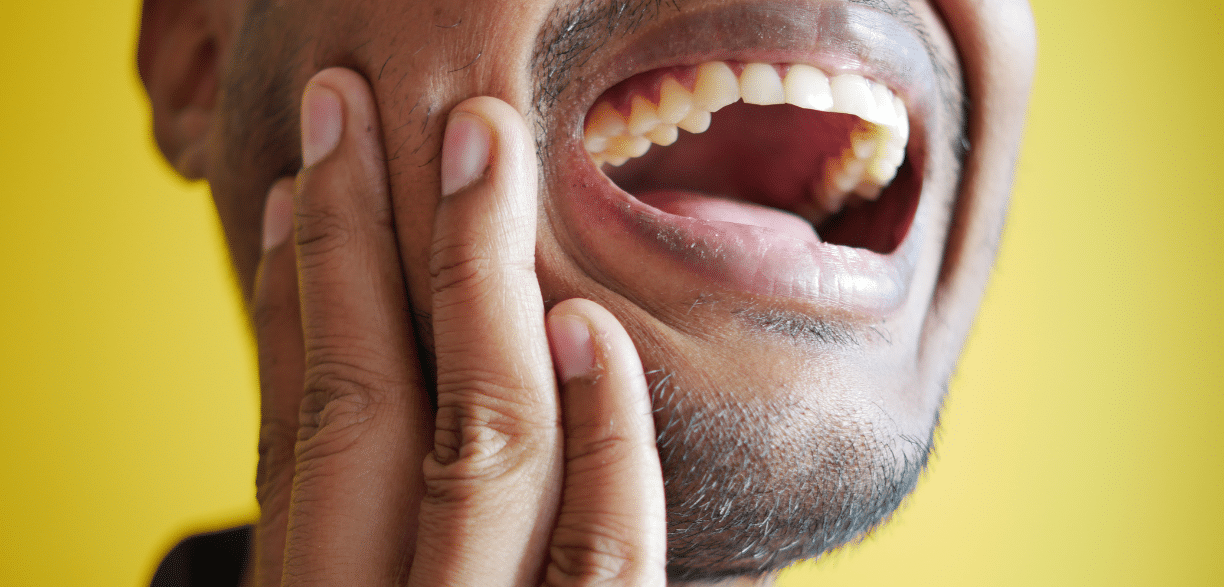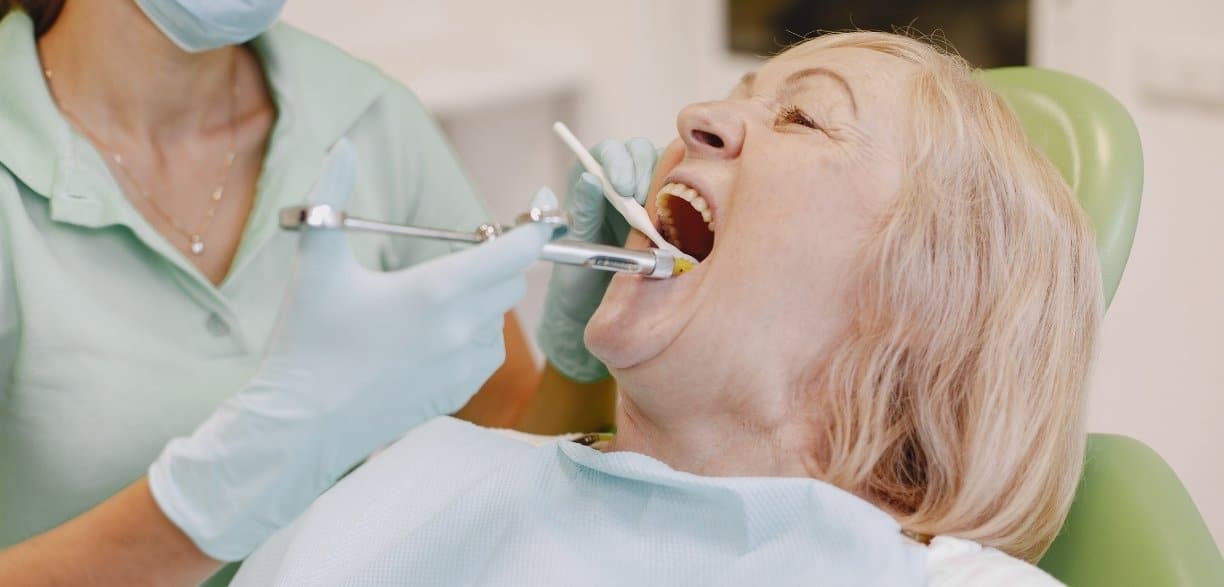
Have you ever experienced a sudden dental emergency and didn’t know what to do? Dental emergencies can be painful, and scary, and often require immediate attention. Whether it’s a chipped tooth from biting down on something hard or a knocked-out tooth from an accidental fall, it’s crucial to know how to handle these situations before seeking professional help. In this blog post, we’ll discuss the top five common dental emergencies and provide first-aid tips on how to manage them. Read on for some useful information that could save your smile!
5 common dental emergencies
Chipped tooth
Chipping a tooth can be a common dental emergency that many people experience. It can happen from biting down on something hard or even from an accident or injury. When this happens, it’s important to act quickly and take the necessary steps to prevent further damage.
The first step when you chip a tooth is to rinse your mouth with warm water. This will help remove any debris or fragments left in your mouth. If there is bleeding, apply pressure using gauze until it stops.
If there is pain, use over-the-counter pain medication like ibuprofen to help manage it. Applying a cold compress on the outside of your cheek where the chipped tooth is located can also provide relief and reduce swelling.
It’s crucial to see a dentist as soon as possible if you’ve chipped your tooth. Depending on how severe the chip is, they may recommend filling or bonding the affected area with resin material for cosmetic purposes.
In more severe cases, root canal treatment may be necessary if the chip has exposed nerves within the tooth. Remember that delaying treatment can lead to further complications and make repairs more difficult in the future.
Taking immediate action and seeking professional help from your dentist are essential steps in dealing with chipped tooth emergencies effectively!
Cracked tooth
A cracked tooth can be a painful and alarming experience. Often, it results from biting down on something hard, an accident or injury, or even just the wear and tear of daily life. It’s essential to address this dental emergency swiftly to prevent further damage and pain.
When you first notice the crack, avoid chewing on that side of your mouth. This helps protect the damaged tooth from additional pressure and prevents food particles from getting lodged in the crack.
Rinsing your mouth with warm water is another helpful step as it clears away debris that may have accumulated around the affected area. Applying a cold compress to your cheek can also help reduce any swelling or discomfort.
Over-the-counter pain relievers like ibuprofen can provide temporary relief until you’re able to see a dentist for proper evaluation and treatment. Be sure not to place aspirin directly on the gum tissue, as this could lead to irritation or burns.
It’s crucial not to ignore a cracked tooth, as delaying treatment could result in further complications such as infections or even loss of the tooth altogether. Schedule an appointment with your dentist promptly for professional care tailored specifically for your situation.
Knocked-out tooth
A knocked-out tooth can be a scary and painful experience. First, stay calm and act quickly as there’s a chance to save the tooth if you act fast. Pick up the tooth by the crown (top part), never touch the root, and gently rinse it with milk or saline solution.
Avoid rubbing, scrubbing, or drying out the tooth. If possible, try placing it back into its socket carefully while holding it in place with gentle pressure using your fingers or biting down on a soft cloth.
If you cannot put your tooth back in its socket, keep it moist by placing it in milk or saliva until you get help from an emergency dentist.
The chances of saving a knocked-out permanent tooth are highest within 30 minutes of injury; therefore, time is crucial when dealing with this type of dental emergency.
Remember to seek immediate dental attention after repositioning your lost teeth to ensure proper healing and follow-up care for long-term health benefits.
Broken dental appliance
A broken dental appliance can be a frustrating and often painful experience. Common broken appliances include braces, retainers, and dentures. If you have a broken appliance, it’s important to address the issue as soon as possible.
Firstly, if your broken dental appliance is causing pain or discomfort in your mouth, try to relieve the pain by taking over-the-counter painkillers. Applying ice packs on the affected area can also help reduce swelling.
Next, contact your dentist or orthodontist immediately to schedule an appointment for repair or replacement of your appliance. Avoid attempting any DIY repairs at home as this may further damage the appliance and worsen the situation.
In case you cannot get immediate assistance from a professional due to unavailability or other reasons, remove any loose pieces of the device that are causing irritation or injury inside your mouth with clean tweezers. Place them in a safe container so they don’t get lost before you see a doctor.
Remember that continuing to use an ill-fitting damaged dental device will only aggravate existing issues and create additional problems down the line leading up to more expensive treatments later on.
Abscessed tooth
An abscessed tooth is a severe dental emergency that requires immediate attention. This condition occurs when the pulp of the tooth becomes infected, leading to inflammation and pus buildup. Abscesses can cause severe pain, swelling, and fever if left untreated.
If you suspect that you have an abscessed tooth, it’s essential to see your dentist as soon as possible. In the meantime, there are some things you can do at home to manage your symptoms and reduce discomfort.
One of the most effective ways to relieve pain caused by an abscessed tooth is to rinse your mouth with warm salt water several times a day. This will help remove bacteria from the affected area and promote healing.
You may also consider taking over-the-counter pain relievers such as ibuprofen or acetaminophen to manage pain and reduce inflammation.
However, keep in mind that these remedies are only temporary solutions; they won’t treat the underlying infection causing your symptoms. So be sure to schedule an appointment with your dentist right away if you suspect you have an abscessed tooth!
First aid for dental emergencies
Dental emergencies can happen at any time, and it’s essential to know how to respond quickly. First aid for dental emergencies involves taking immediate actions to ease the pain and prevent further damage until you can see a dentist.
If you experience a severe toothache or jaw pain, rinse your mouth with warm water and use dental floss to remove any food particles that may have gotten stuck in between your teeth. Take over-the-counter pain relief medication if necessary.
In cases where a tooth has been knocked out of its socket, pick up the tooth by the crown (the part that is usually visible above the gum line) and avoid touching the root. Rinse it gently with tap water before trying to reinsert it into its socket. If this isn’t possible, place it in a container of milk or saline solution until you reach your dentist.
For broken braces or dentures, try not to adjust them on your own as this could lead to further damage. Instead, cover any sharp edges with orthodontic wax and make an appointment with your dentist as soon as possible.
Remember that these first aid tips are only temporary solutions; they cannot replace professional dental care. Seek urgent attention from a qualified dentist immediately after encountering any dental emergency for proper diagnosis and treatment options!
When to see a dentist
Remember, while these first aid tips can help alleviate pain and discomfort in dental emergencies, it is always important to seek professional care as soon as possible. Only a dentist can properly diagnose the extent of the damage and provide appropriate treatment.
In general, if you experience any sudden or severe tooth pain or trauma to your teeth, gums, or mouth, it is recommended that you see a dentist immediately. Delaying treatment could lead to further complications and longer recovery times.
Additionally, regular dental check-ups can also help prevent serious dental emergencies from occurring in the first place. So don’t neglect your oral health – schedule routine appointments with your dentist to keep your smile healthy and happy for years to come!



